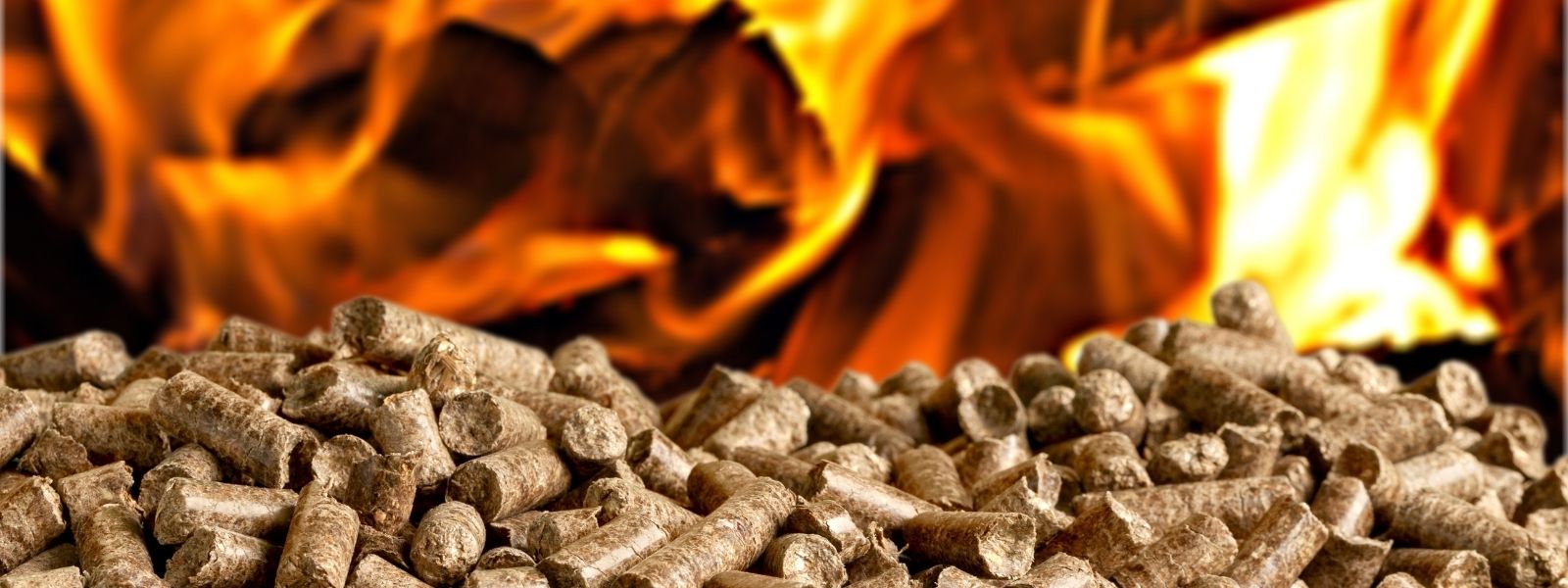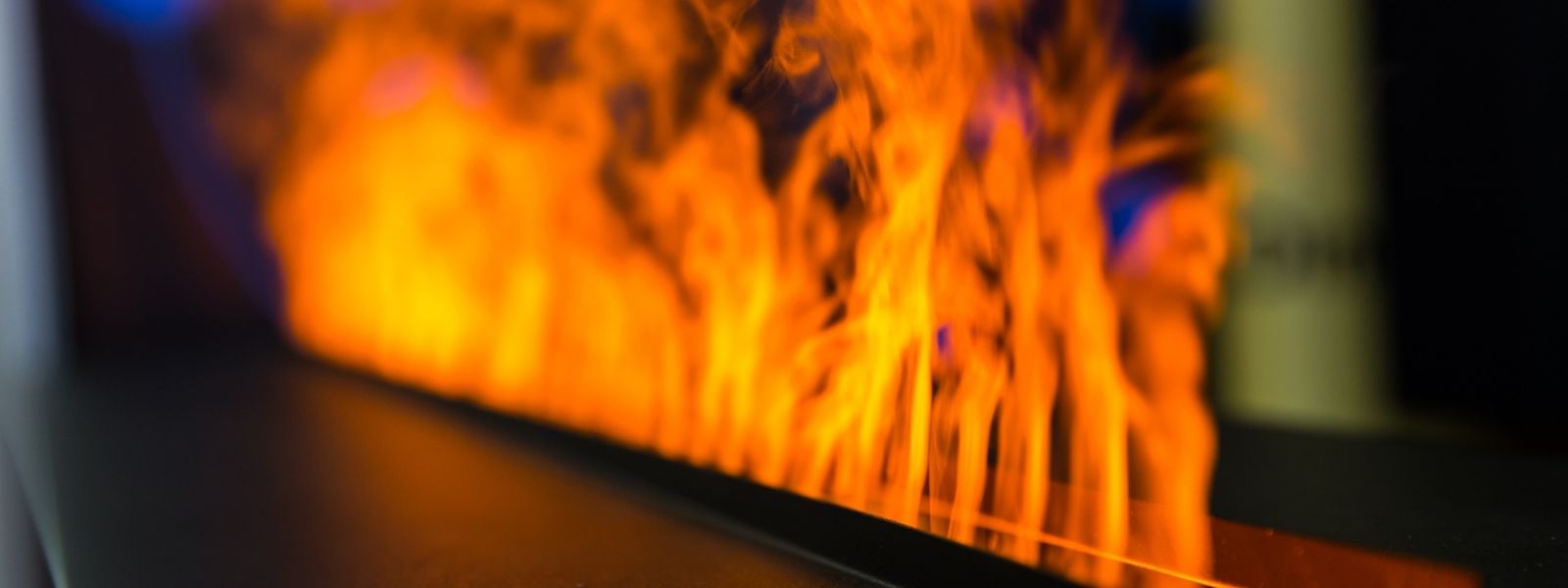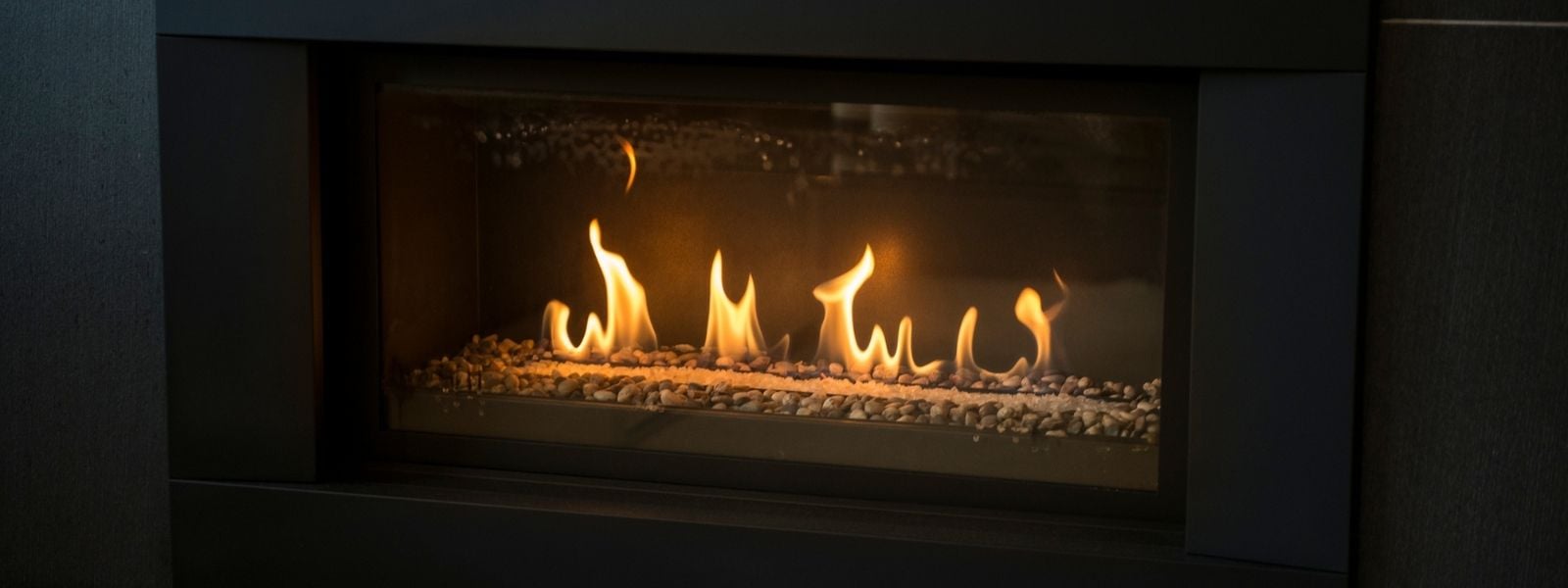Outline
-
- Introduction
- Advantages of Wood as a Fireplace Fuel
- Disadvantages of Wood as a Fireplace Fuel
- Advantages of Natural Gas as a Fireplace Fuel
- Disadvantages of Natural Gas as a Fireplace Fuel
- Advantages of Propane as a Fireplace Fuel
- Disadvantages of Propane as a Fireplace Fuel
- Advantages of Electric as a Fireplace Fuel
- Disadvantages of Electric as a Fireplace Fuel
- Conclusion and Choosing the Right Fireplace Fuel for Your Needs
Introduction
Are you considering installing a new fireplace in your home or looking to switch to a different fuel source for your existing fireplace? Understanding the advantages and disadvantages of various fireplace fuels is essential to make an informed decision. In this article, we will explore the different types of fireplace fuels available on the market today and weigh their pros and cons.
From traditional wood-burning fireplaces to modern gas or electric options, each fuel has its unique benefits and drawbacks. Wood, for instance, offers a nostalgic ambiance and a natural heat source, but it requires regular maintenance and emits air pollutants. On the other hand, gas fireplaces provide convenience and cleanliness, but they may lack the authenticity and crackling sounds of a wood fire.
By examining the advantages and disadvantages of various fireplace fuels, you can determine which one aligns best with your preferences, lifestyle, and environmental considerations. Join us as we delve into the world of fireplace fuels and uncover the factors that will help you choose the perfect option for your home.
Advantages of Wood as a Fireplace Fuel
Wood has been used as a fuel source for fireplaces for centuries. It offers several advantages that make it a popular choice among homeowners.
1. Nostalgic Ambiance: One of the main advantages of using wood as a fireplace fuel is the cozy and nostalgic ambiance it creates. The crackling sound and the aroma of burning wood can create a warm and inviting atmosphere in your home.
2. Natural Heat Source: Wood is a renewable resource, making it an environmentally friendly choice for heating your home. It provides a natural and efficient heat source that can keep your space warm even during power outages.
3. Cost-Effective: Wood is often more affordable compared to other fuel options, especially if you have access to a local source of firewood. This can result in significant cost savings over time.
However, wood as a fireplace fuel also has its disadvantages.
1. Regular Maintenance: Wood-burning fireplaces require regular maintenance, including cleaning the chimney and removing ashes. This can be time-consuming and may require professional assistance.
2. Air Pollutants: Wood combustion releases pollutants such as carbon monoxide, nitrogen oxides, and particulate matter into the air. This can impact air quality, especially in areas with poor ventilation.
3. Storage and Handling: Storing and handling firewood can be challenging, particularly if you have limited space. You need to ensure that the wood is properly dried and stored to avoid issues with moisture and pests.
Disadvantages of Wood as a Fireplace Fuel
Wood has long been a popular choice for fireplace fuel, offering a nostalgic ambiance and a natural heat source. However, it’s important to consider the disadvantages as well.
Firstly, wood requires regular maintenance. You need to source, chop, and store the wood, which can be time-consuming and physically demanding. Additionally, wood-burning fireplaces produce a significant amount of ash and soot that needs to be regularly cleaned out to prevent buildup and maintain optimal performance.
Secondly, wood-burning fireplaces emit air pollutants. Smoke from wood fires releases harmful substances such as carbon monoxide, nitrogen oxides, and particulate matter. These pollutants can negatively impact indoor and outdoor air quality, especially for those with respiratory conditions or living in urban areas.
Lastly, wood may not be a sustainable fuel option for everyone. It takes years for trees to grow and be harvested, making wood a non-renewable resource. If sustainability is an important factor for you, it may be worth exploring alternative fuel options.
Advantages of Natural Gas as a Fireplace Fuel
Natural gas fireplaces have become increasingly popular due to their convenience and cleanliness. Let’s explore the advantages of using natural gas as a fireplace fuel.
1. Convenience: Natural gas fireplaces offer instant heat at the flick of a switch. You don’t need to worry about gathering firewood or cleaning up ashes. With a natural gas fireplace, you can enjoy a cozy fire without the hassle.
2. Clean Burning: Natural gas is a clean-burning fuel. It produces fewer emissions compared to wood, resulting in improved indoor air quality and reduced environmental impact.
3. Control and Efficiency: Gas fireplaces provide precise control over the flame and heat output. You can easily adjust the flame height and heat intensity to suit your preferences. Additionally, gas fireplaces are highly efficient, converting a large percentage of the fuel’s energy into heat.
However, there are also some disadvantages associated with natural gas fireplaces.
1. Lack of Authenticity: While natural gas fireplaces can mimic the appearance of a wood fire, they lack the authenticity of a real wood-burning fireplace. Some homeowners may miss the crackling sounds and distinctive aroma of burning wood.
2. Dependency on Utility Supply: Natural gas fireplaces require a connection to a gas utility supply. If there is an interruption in the gas supply, you won’t be able to use your fireplace until the issue is resolved.
3. Limited Installation Options: Installing a natural gas fireplace may require access to a gas line, which may not be available in all areas. This can limit your options if you are considering adding a fireplace to a specific room in your home.
Disadvantages of Natural Gas as a Fireplace Fuel
Gas fireplaces have gained popularity in recent years due to their convenience and cleanliness. However, there are a few downsides to consider when using natural gas as a fireplace fuel.
One disadvantage is the lack of authenticity compared to a wood fire. Gas fireplaces may lack the crackling sounds and natural aroma that many people associate with a traditional fireplace. While some gas fireplaces are designed to mimic the appearance of a wood fire, they may not fully replicate the experience.
Another drawback is the reliance on a continuous gas supply. If there is a disruption in the gas service in your area, your fireplace will not be able to function. This is something to consider, particularly in regions prone to natural disasters or areas with unreliable gas infrastructure.
Lastly, natural gas is a fossil fuel, and burning it releases carbon dioxide into the atmosphere. This contributes to greenhouse gas emissions and the overall carbon footprint of your home. If you are concerned about environmental impact, it may be worth exploring alternative, more eco-friendly fuel options.
Advantages of Propane as a Fireplace Fuel
Propane is another popular fuel option for fireplaces, offering several advantages that make it a viable choice for homeowners.
1. Versatility: Propane fireplaces can be installed virtually anywhere in your home, as they don’t require a chimney or venting system. This gives you more flexibility when it comes to the placement and design of your fireplace.
2. Energy Efficiency: Propane is an efficient fuel source, providing a high heat output and quick heating response. It can help you save on energy costs while keeping your home warm and comfortable.
3. Clean Burning: Propane is a clean-burning fuel, resulting in fewer emissions compared to wood-burning fireplaces. This makes it a more environmentally friendly option.
Despite its advantages, propane fireplaces also have some disadvantages to consider.
1. Fuel Storage: Unlike natural gas, propane requires on-site storage in a tank. This means you need to allocate space for the tank and ensure it is properly maintained and filled.
2. Cost: The upfront cost of installing a propane fireplace can be higher compared to other options. Additionally, the cost of propane fuel may vary depending on market conditions.
3. Dependency on Supply: Similar to natural gas, propane fireplaces rely on a supply of fuel. If there is a shortage or disruption in the propane supply, you won’t be able to use your fireplace until the supply is restored.
Disadvantages of Propane as a Fireplace Fuel
Propane is another popular fuel choice for fireplaces, offering many advantages such as convenience and efficiency. However, there are a few disadvantages to consider before opting for propane.
One disadvantage is the storage and handling of propane tanks. Propane requires a dedicated storage space, typically an outdoor tank, which can take up valuable space in your yard. Additionally, propane tanks need to be regularly inspected and refilled, adding to the overall maintenance and cost of using propane as a fuel source.
Another drawback is the potential safety risks associated with propane. Propane is highly flammable, and mishandling it can lead to accidents or even explosions. It’s crucial to follow proper safety protocols when using propane as a fireplace fuel and ensure that your fireplace and propane system are installed and maintained by a professional.
Lastly, propane is a non-renewable fossil fuel. Like natural gas, burning propane releases carbon dioxide into the atmosphere, contributing to climate change. If sustainability is a priority for you, it may be worth exploring alternative fuel options that have a lower environmental impact.
Advantages of Electric as a Fireplace Fuel
Electric fireplaces have gained popularity due to their convenience and versatility. Let’s explore the advantages of using electric as a fireplace fuel.
1. Easy Installation: Electric fireplaces are easy to install and require minimal construction work. They can be placed in any room with access to an electrical outlet, making them a flexible option for both new and existing homes.
2. No Emissions or Venting Required: Electric fireplaces don’t produce any emissions, making them a clean and safe option for indoor use. They don’t require a venting system, eliminating the need for a chimney or flue.
3. Low Maintenance: Electric fireplaces require minimal maintenance. They don’t produce ashes or soot, and there is no need for regular cleaning or chimney inspections.
However, there are also some disadvantages associated with electric fireplaces.
1. Limited Heat Output: Electric fireplaces may not provide the same level of heat output as wood or gas fireplaces. They are more suitable for supplemental heating rather than being the primary heat source for large spaces.
2. Dependence on Electricity: Electric fireplaces rely on a stable electricity supply. If there is a power outage, you won’t be able to use your fireplace until the power is restored.
3. Less Authenticity: While electric fireplaces can mimic the appearance of a real fire, they lack the authenticity and ambiance of a wood-burning fireplace. Some homeowners may miss the visual and sensory experience of a traditional fire.
Disadvantages of Electric as a Fireplace Fuel
Electric fireplaces have gained popularity in recent years due to their ease of use and versatility. However, there are a few disadvantages to consider when using electric as a fireplace fuel.
One disadvantage is the lack of heat output compared to other fuel options. Electric fireplaces typically produce less heat than wood or gas fireplaces, which may not be sufficient for larger spaces or colder climates. If you are primarily looking for a heat source, electric fireplaces may not be the most efficient option.
Another drawback is the reliance on electricity. Electric fireplaces require a power source to function, and if there is a power outage, your fireplace will not work. This is an important factor to consider, particularly in areas with frequent power disruptions or if you are looking for a backup heat source during emergencies.
Lastly, electric fireplaces may lack the authenticity and ambiance of a traditional fireplace. While some electric fireplaces are designed to mimic the appearance of a wood or gas fire, they may not fully replicate the experience. The absence of crackling sounds and the natural aroma of burning wood or gas may be a downside for those seeking a more immersive fireplace experience.
As you can see, each type of fireplace fuel has its own set of advantages and disadvantages. By examining these factors, you can determine which fuel aligns best with your preferences, lifestyle, and environmental considerations. Whether you prioritize convenience, sustainability, or the traditional fireplace experience, there is a fuel option out there that will meet your needs. Consider these factors carefully and make an informed decision to ensure you have a fireplace that enhances the comfort and ambiance of your home.
Conclusion and Choosing the Right Fireplace Fuel for Your Needs
In conclusion, there are several factors to consider when choosing the right fireplace fuel for your needs. Each fuel option has its advantages and disadvantages, and it’s essential to assess your preferences, lifestyle, and environmental considerations.
If you value the nostalgic ambiance and natural heat source, wood may be the ideal choice for you. However, keep in mind the regular maintenance and air pollutant emissions associated with wood-burning fireplaces.
If convenience and cleanliness are a priority, natural gas or propane fireplaces may be more suitable options. They offer instant heat, clean burning, and precise control over the flame and heat output. However, consider the lack of authenticity, dependency on utility supply, and fuel storage requirements.
For versatility and ease of installation, electric fireplaces are a viable option. They don’t produce emissions, require minimal maintenance, and can be placed in any room with access to electricity. However, keep in mind the limited heat output and dependence on a stable power supply.
Ultimately, the right fireplace fuel choice will depend on your personal preferences, budget, and the specific requirements of your home. Take the time to research and weigh the pros and cons of each fuel option before making a decision. With proper consideration, you can find the perfect fireplace fuel that will enhance the comfort and ambiance of your home for years to come.




